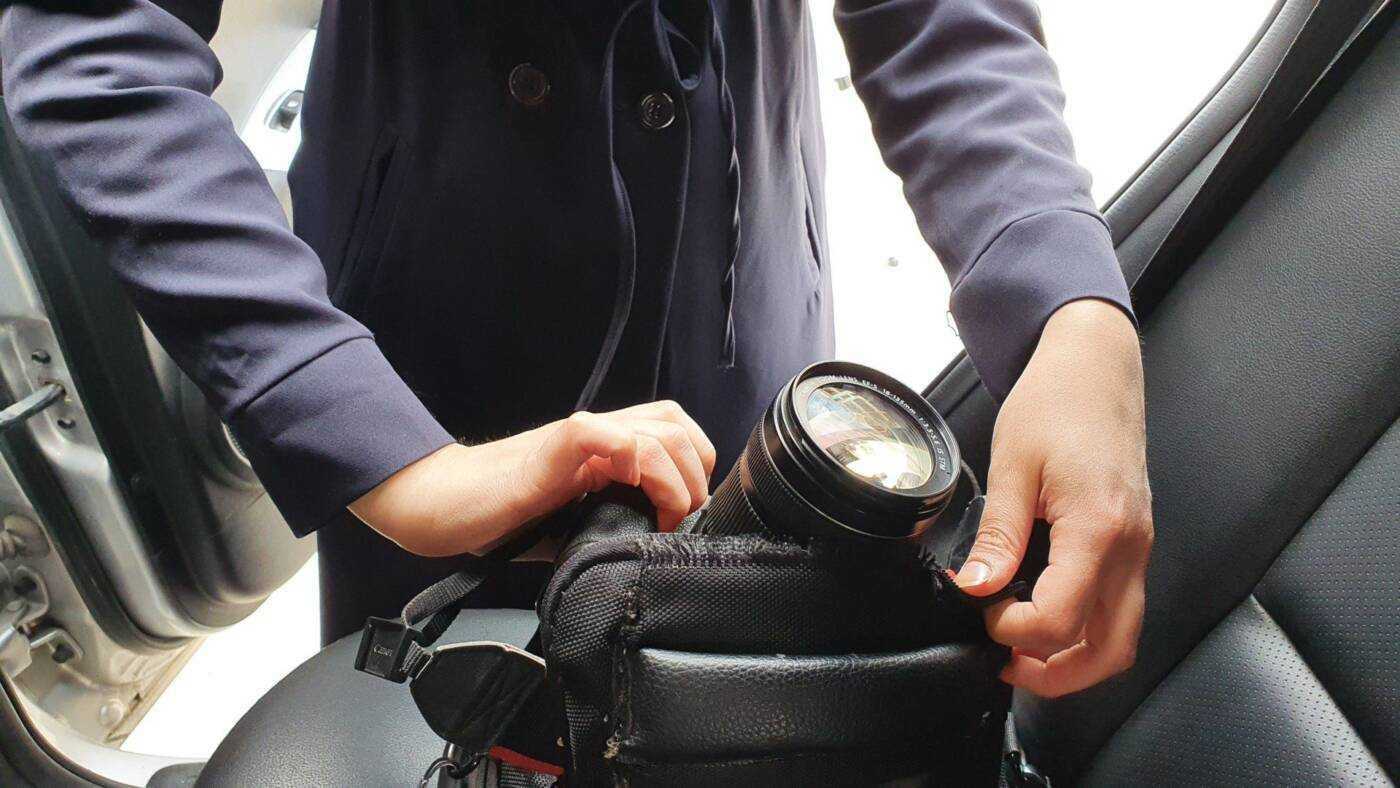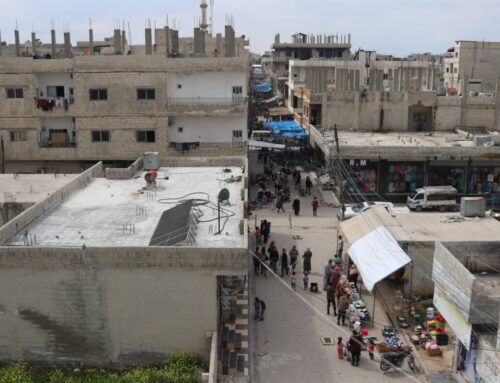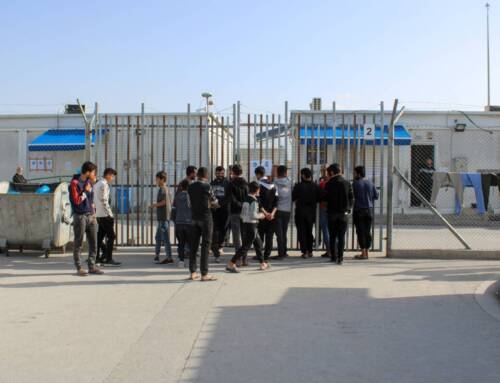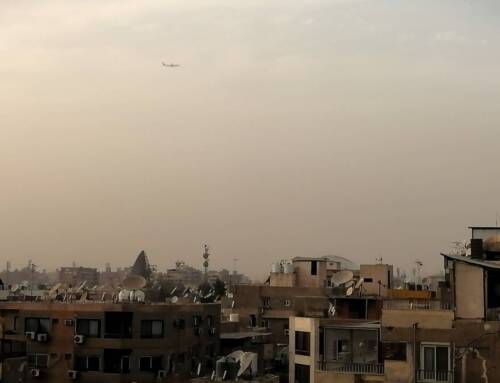The personal cost of reporting as a woman in northwestern Syria
IDLIB — “You can’t sum up the social challenges faced […]
3 January 2023
IDLIB — “You can’t sum up the social challenges faced by women who work in a few lines, and journalists face the largest share,” said Wahida Farouq (a pseudonym), a journalist in the Idlib countryside. The restrictions she faces while working lead her to “despair,” she said.
Wahida is one of at least 54 women journalists working in northwestern Syria, according to the Syrian Center for Media and Freedom of Expression. Most work in written journalism, while those in audiovisual media are very few—in part due to the extent to which social customs and traditions related to women’s work impact their personal lives.
Wahida began working as a journalist in 2011, and since then has done several jobs in the field: a writer, a correspondent for a local radio station and a television producer. But when she got engaged in 2020, she ran up against stipulations from her fiance and entered a cycle of ongoing conflict surrounding her work.
Her fiance forced her to “delete the numbers of my male colleagues, and barred me from sending any voice messages while interviewing sources, so my messages were limited to texts,” she told Syria Direct.
Before her engagement, Wahida had clashed with her older brothers and the surrounding community regarding her work. But the most recent “major disputes” with her fiance have delayed her wedding to this day.
“Marrying a journalist is often subject to impossible conditions by the groom and his family,” Wahida said. “A wide segment of men are not understanding of the nature of women’s work in journalism, that public relationships are one of its necessities and that going out to film, cover and take statements from those concerned is the basis of their work.”
Journalism a ‘stigma’
In a focus group discussion Syria Direct held with a group of women journalists from northwestern Syria in late 2022, the participants expressed varying degrees of satisfaction with the state of their work more than a decade after the Syrian revolution broke out, as well as with their efforts to change society’s view of women in media from what it was before 2011.
While some described progress, women who work in media and the press are largely not encouraged by society in Idlib province and its countryside. There are still voices—more than a few—dissatisfied with women’s involvement in the sector, and this dissatisfaction sometimes reaches the point of social stigma. This stigma follows journalists, reducing their marriage options or forcing them to continue their work according to certain conditions, as in Wahida’s case.
Majd Hamou, himself a journalist in Idlib, said he finds no objection to being engaged to another journalist “without placing any restrictions or conditions limiting her work.” He said he believes in “the principle of equality in work, and balance in society, so long as she can work with professionalism and passion.”
But those like Hamou may be few compared with those who reject women’s involvement in journalism. He described a “prevailing view among men looking down on women who work in public affairs, and journalists in particular.” Still, he feels that things are getting better, and that social “pressure on women is less than it was before, and the community has grown more accepting.”
Social perceptions of women journalists vary from one region to another in northwestern Syria, and may be more negative in villages and small towns, said Shahed al-Muhammad (a pseudonym). In the small Idlib countryside town where she lives, “rumors spread quickly, due to the small population and the women working in collective workshops.”
“From the moment I leave for work until I come back, rumors spread about me,” Shahed said. “The village residents believe that a journalist is a woman who is open to outside customs that don’t suit their conservative society.” She said she is “a topic of conversation when women get together to drink coffee, and they predict my marriage will end in divorce.”
While her husband at first valued her work and did not prevent her from practicing journalism, Shahed felt he was “becoming influenced by the gossip,” leading him to insinuate she should leave the field.
“If it weren’t for his sound mind, he would have listened to his family and society, and forced me to leave work or separate from me,” Shahed said. In the end, though, the couple agreed “not to listen to what anybody says.”
Her husband remains supportive, and while Shahed has lessened her work recently as she is pregnant with the couple’s second child, “I haven’t given it up,” she said.
Shahed started working as a journalist four years ago, and has produced written and televised reports for several media outlets in Idlib province, without appearing on camera. But despite her years of work, she believes “social customs and traditions in northwestern Syria still don’t encourage women to work in some professions, including journalism.”
When she first decided to study media, Shahed only thought of “the difficulties and risks related to the bombing of the area I cover.” She believed society “would accept my work as a journalist, that I would be appreciated and respected by those around me because I shed light on their issues and suffering during bombing and displacement.” But she found the opposite.
Shahed remembers announcing her engagement in a post on her personal Facebook page. “When I expressed my joy at being engaged to my life partner, I got offensive comments. Others said the news of the engagement was a lie in the first place.” It left her wondering: “Is working in journalism a stigma to prevent young men from getting engaged to me?”
Raneem (a pseudonym), a journalist who was displaced from the southern Idlib countryside to the provincial capital in 2019, realized her childhood dream of studying media at Idlib University in 2017, before it was reserved for men only last year.
She finished her studies and worked in journalism after her marriage, but her work “caused problems with my husband, because of mixing with men while doing interviews,” she told Syria Direct. Raneem sees the problem as not with her husband specifically so much as “the social customs that limit women’s work.”
Outside of issues in her marriage, she has faced negative comments from those around her: “Haven’t you found another specialty?” “This profession suits men more than women.” “If you were a teacher, it would be better for you.”
These phrases reveal “society’s inferior view and demeaning of women journalists,” Raneem said. For her, navigating that has looked like “determination and seriousness in relationships—I set boundaries for everyone so I don’t face any problem.”
Restricted out of jealousy
The impact of customs and traditions on women journalists in northwestern Syria varies according to the educational level and culture of men, sources Syria Direct spoke to said. The higher the cultural and educational level of society, the greater its acceptance of women working, especially in journalism, they added.
Men not accepting women journalists reflects feelings of “jealousy” resulting from their work that shake their trust in their wives, daughters or sisters who are journalists, Wahida Farouq said. She described her fiance’s jealous protectiveness as “blind,” reaching the point of him making her choose between “him as a husband and journalism.”
She feels “constant anxiety and stress, because my husband doesn’t consider my circumstances, and I feel that he does not trust me as a partner, that it is impossible for her to serve the revolution we took part in for the sake of freedom, dignity and a better life.”
Conflict with her fiance has affected Wahida’s ability to work. While she values professional commitment, when work-related disputes arise with him, she sometimes has to neglect tasks without saying why, or by giving other reasons.
While she is saddened by her fiance’s lack of understanding or considering her love for journalism, Wahida sometimes seeks to excuse it, knowing that “the problem is with society, because it doesn’t agree with women working in some fields.”
“There is a sizable segment of Idlib society that supports women journalists, encourages them and respects their work,”she said. Strangely enough “my fiance was one of those people before I got engaged to him.”
But once the two were engaged, he set conditions for her to continue working as a journalist. But recently, her fiance “stipulates that I abandon my work permanently, change all my accounts on social media and my phone number, and stay away from the journalistic work environment for our partnership to continue and culminate in marriage,” she said.
He has given her an ultimatum: either be engaged to the person she loves and abandon a profession she is passionate about, or the opposite.
**
This report was produced as part of the project “Against Discrimination,” with the support of Free Press Unlimited (FPU). Syria Direct is solely responsible for its contents, which do not necessarily reflect the views of FPU.
This report was originally published in Arabic and translated into English by Mateo Nelson.







